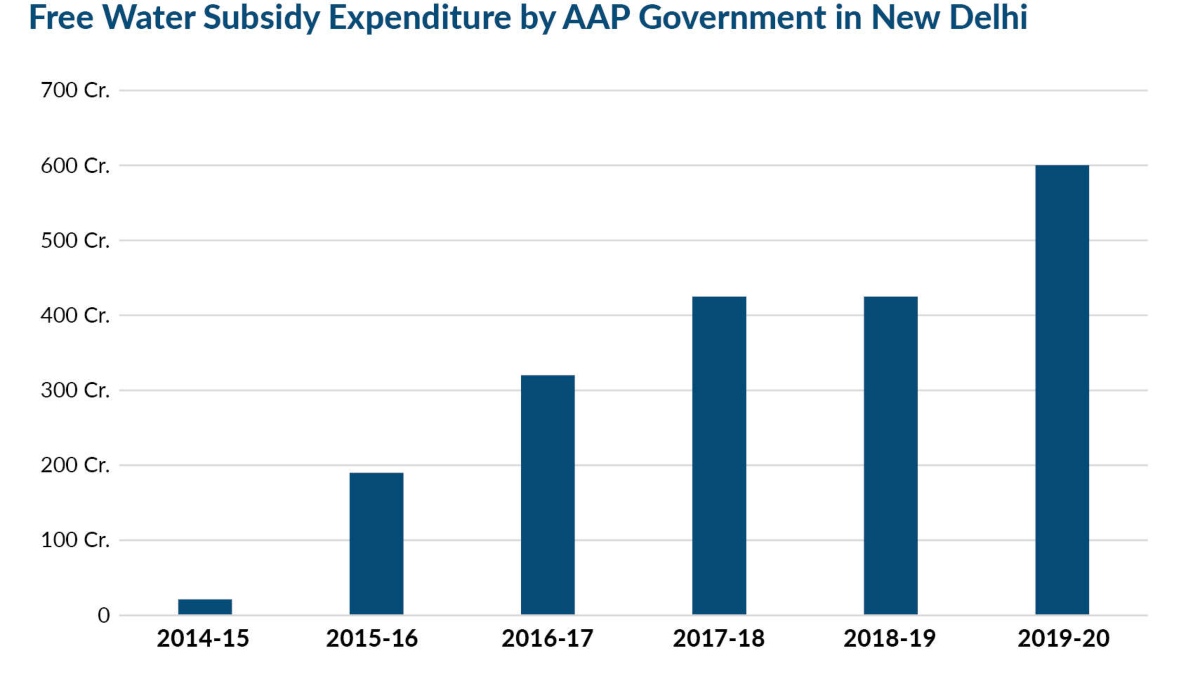


In 2013, as part of the AAP’s first manifesto, the party promised 20,000 litres of free piped water per household per day. The scheme was finally implemented in 2014, and once again during the run up to the 2019 Assembly Elections in New Delhi, the incumbent Arvind Kejriwal made the same promise to Delhiites. This was coupled with the promise of 24*7 water supply as well.


Responding to a public interest litigation (PIL) in February 2019, the AAP government told the Delhi Assembly that the Rs. 400 crore water subsidy (for the year 2017-18) was benefitting 5.3 lakh residents of Delhi. In fact, the party also mentioned that the scheme had led to an increase in water conservation as customers wanted to avail the benefit of the scheme by reducing their consumption. They also reported that the implementation of the scheme led to an increase in the number of functional water meters across the city.
Based on these findings, it would appear that the scheme had been a success. However, was that really the case? Just months after that, in September 2019, the National Green Tribunal (NGT), which is a specialised forum for effective and quick disposal of cases related to environmental protection put out a statement saying the Delhi Jal Board (DJB) needed to take steps to prevent wastage of water in the city. What did the tribunal say? As per the monitoring committee (consisting of a retired high court judge and representatives from the DJB, Central Pollution Board and Central Ground Water Authority) reporting to the tribunal, various housing colonies were misusing the Delhi government’s scheme of providing 20,000 litres of water free of cost every month. These findings were in stark contrast to what the AAP government said earlier in 2019.
The monitoring committee also found that after extracting 20,000 litres of free water, several colonies were using borewells and tubewells to extract more water and avoid paying tariffs. At the time of the report, there were 17,062 illegal borewells in the city. This has increased to 19,000 as of July 2020. Not only this, the committee also noted that the overuse of groundwater for drinking, irrigation and domestic purposes has led to its rapid depletion across the city. In fact, the water table has dropped more than 300 feet in many parts of the capital.
Source: Delhi Budget Analysis . PRS India